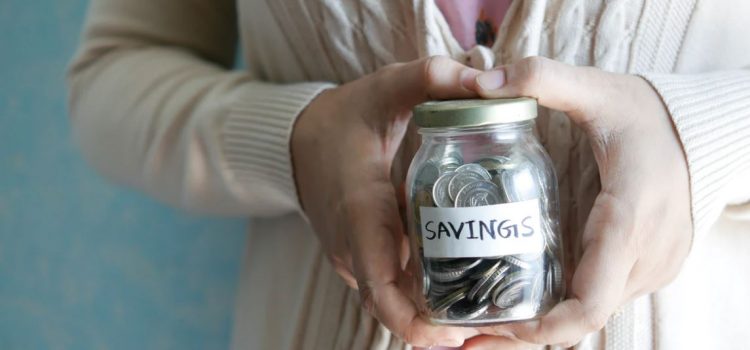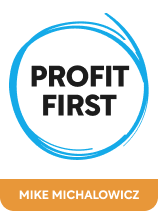

This article is an excerpt from the Shortform book guide to "Profit First" by Mike Michalowicz. Shortform has the world's best summaries and analyses of books you should be reading.
Like this article? Sign up for a free trial here .
Do you want to learn how to manage your finances? How can you apply the Profit First method to your personal finances?
The Profit First method was created by entrepreneur Mike Michalowicz to help businesses succeed in the long term. However, the three principles of the Profit First method can be applied to your personal finances to help you get out of debt and save money.
Keep reading to learn how to manage your finances and increase your financial stability by following Mike Michalowicz’s Profit First method.
Step #1: Set Up Your Bank Accounts
In his book Profit First, Michalowicz explains how to manage your finances using the Profit First method. The first step is to open five bank accounts:
- Income: Where your money goes before you allocate it, just like for a business.
- Emergency: Your eventual goal is to have enough money in this account for eight months’ worth of living expenses with no income. Early on, though, try to just put together one month’s worth.
- Daily expenses: Money you use for non-recurring expenses like food, clothes, or home repairs. Determine how much money you’ll need for a given month, then allocate half of that amount to this account every two weeks.
- Recurring expenses: Money you use for recurring expenses like rent, utility bills, or online subscriptions. Total up all of these expenses, then allocate that much money to this account each month.
- Debt repayment: All remaining income after your other allocations will go to this account, and will be used to pay back your personal debts.
| Alternative Options for Personal Bank Accounting Michalowicz isn’t too specific when talking about how you might allocate your personal income to these bank accounts. For more details on where to put specific portions of your income, you can look to Scott Pape’s The Barefoot Investor. While some of his recommendations are similar to Michalowicz’s, he also offers three specific guidelines for allocating your personal income: 1. Managing necessary expenses: Pape recommends you allocate 60 percent of your income to necessary expenses each month and work to keep your necessary expenses at or below that amount. 2. Managing unnecessary expenses: Pape recommends making separate bank accounts for unnecessary expenses—things like entertainment, pleasure, or hobbies. Specifically, he recommends you make a “Treat” account for day-to-day entertainment (like drinks with friends) as well as a “Happy” account you use to save for larger entertainment costs (like a vacation or new car). He recommends that you allocate 10 percent of your personal income to both of these accounts each month. 3. Managing debt and emergencies: For the last 20 percent of your income, Pape recommends allocating it towards paying off debt and maintaining an emergency fund—in Michalowicz’s system, this money would go towards your emergency and debt repayment accounts. |
Step #2: Manage Your Debt
These are two extra guidelines Michalowicz offers for paying off personal debts like student loans, your mortgage, or credit card debt.
Pay From Smallest to Largest, and Shortest to Longest
First, Michalowicz advises you pay your debts from smallest to largest just like you would for your business. In addition, focus on more immediate debts first before worrying about longer-term debt. Doing so helps to build your confidence before taking on larger, more intimidating debts.
- For example, focus on your credit card debt or student loans before trying to fully pay off your mortgage.
(Shortform note: While Michalowicz only discusses how to pay down your debts, David Bach’s The Automatic Millionaire suggests methods that will ultimately reduce the amount you’ll have to pay overall. To do this, he advises you to negotiate with your credit card company for a lower interest rate, consolidate multiple debts into a single, low interest account, and automate your debt payments so you never miss them.)
Get Rid of Your Credit Cards
Second, Michalowicz advises that while in debt, you should get rid of all of your credit cards except for one you use in case of emergencies. The number one priority when in debt is to avoid increasing your debt further, and getting rid of your credit cards will limit the ease with which you can do so. Set strict limits on when you can use your emergency credit card, and lower the card’s limit as you pay off its debt to keep yourself from getting into more debt should your spending discipline lapse.
(Shortform note: Getting rid of your credit cards as Michalowicz suggests will most likely lower your credit score, especially if they were accounts you’ve had open for a long time. This is because doing so can shorten your credit history, which is a component of your credit score. Michalowicz acknowledges this, but he argues that you shouldn’t worry about your credit score until you get out of debt. That being said, if you are looking for a loan in the near future and trust your spending discipline, then keeping your credit cards and not using them could be the financially healthier choice.)
Step #3: Saving Money
Once your personal finances are stable, Michalowicz explains how you can save your money and earn more and more interest on it, as well as the benefits that those savings will offer you.
(Shortform note: While Michalowicz doesn’t specify how you should save your money, keep in mind that you have multiple options for how to earn on your savings beyond just keeping money in a bank account. Financial experts recommend you invest about 15 percent of your income. What you invest this money into depends on your financial goals and your risk tolerance, but it could include bank certificates of deposit, bonds, or stocks. That being said, this is a process best done with lots of research and help from financial advisors.)
Keep Your Personal Costs Consistent
To build up your personal savings, Michalowicz recommends you work to keep your personal costs at around the same level, even if your income increases. Doing this even just for a period of five years will allow you to put a significant amount of your money into your savings, which will start to earn you additional money through interest. Michalowicz outlines a few different ways for keeping your personal costs consistent:
- Buy things used instead of new.
- Look for less expensive alternatives when making purchases.
- Delay large expenses until you’ve fully researched how to save the most money possible.
- Find ways to solve problems without spending money.
(Shortform note: While Michalowicz offers practical advice for keeping your costs consistent, author J.L. Collins extends on this by recommending an overall change in how you think about money in The Simple Path to Wealth. He suggests thinking about money in terms of how much you’ll earn from saving or investing it, instead of what you can buy with it. This, he says, will allow you to better understand the opportunity costs of spending your savings—you’ll have an easier time recognizing the potential earnings you’re missing out on when you spend.)
Enjoy the Fruits of Your Labor
The more money you’re earning from interest, the more financial freedom you’ll have in your personal life. You’ll find yourself having to say no to your dreams less often for financial reasons, and will have far less stress about your finances. As you get closer to financial freedom, Michalowicz says to be sure to treat yourself–you’ve earned it. (Shortform note: By reducing your stress levels, you’ll also likely be improving your physical health—research has linked high stress to increased risk of all kinds of physical ailments, including strokes, heart attacks, and chronic pain. When you’re healthier, you can enjoy your financial freedom even more.)

———End of Preview———
Like what you just read? Read the rest of the world's best book summary and analysis of Mike Michalowicz's "Profit First" at Shortform .
Here's what you'll find in our full Profit First summary :
- Why traditional business accounting methods don't work
- How to use the Profit First method to increase your business’s profitability and stability
- How to assess your business's current financial health






